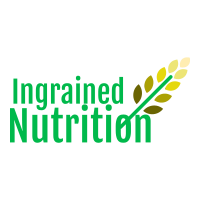Irritable bowel syndrome or IBS is a group of functional bowel disorders causing symptoms of abdominal bloating and distention, increased passing of wind, and altered bowel habits such as diarrhoea or constipation. To be diagnosed with IBS you must have a combination of these symptoms for at least one day a week lasting for over 3 months. For years people were told to live with their symptoms and that this was “just the way they were” because whilst we can manage IBS there is no cure.
Enter the Low FODMAP Diet for the management of
IBS. You may never have heard of this, be confused about it or are unsure
whether a low FODMAP diet is right for you so we have provided the run down.
FODMAP as an acronym, it stands for Fermentable Oligosaccharides,
Disaccharides, Monosaccharides and Polyols. These are short-chain carbohydrates
or sugars found naturally in a lot of healthy foods such as vegetables, dairy,
fruits, nuts, legumes and wheat. When these sugars are digested two processes
occur, they are osmotic so they draw water into the intestine causing internal
pressure and potentially diarrhoea. FODMAPs are also fermented (gobbled up) by
the bacteria that live in our large bowel creating large amounts of wind and
pressure within the gut, causing bloating, distension and wind.
The nerve endings in the guts of those with
irritable bowel syndrome can be very sensitive to these processes, the majority
of us can digest these sugars with no trouble and have no reason to avoid them
as they are actually great food for our gut bacteria and a great source of
fibre.
A low FODMAP diet is a 3 stage elimination diet involving usually 4-6 weeks of
eliminating high FODMAP foods from the diet, a challenge or re-introduction
phase to identify which FODMAPs are triggering your symptoms and in what
amounts and the third stage is your long term diet once your IBS triggers have
been identified. The decision to eliminate FODMAPs from the diet should be made
under the guidance of a FODMAP trained dietitian as it can be a difficult
process to do alone, it isn’t right for everyone and is not the first or only
approach to managing IBS. Unfortunately, we also often see it carried out
incorrectly with people staying in the elimination phase for far too long,
limiting their overall diet unnecessarily as most people can introduce the
majority of high FODMAP foods back into their diet long-term
Reference
Rome Criteria and Diagnostic Approach for IBS. J Clin Med. 2017 Nov; 6(11): 99.
Published online 2017 Oct 26. doi: 10.3390/jcm6110099




